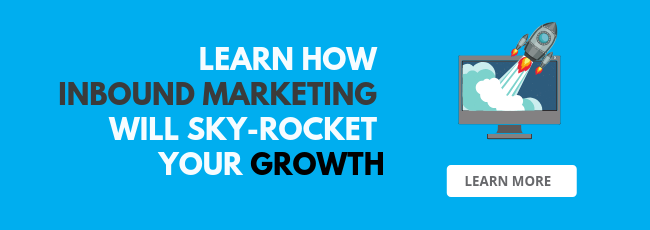
The language should be easily readable, engaging and it should address both their needs and challenges. If your inbound marketing content is aligned with their interests, you’ll naturally attract inbound traffic that you can convert and close. So how do you go about doing this? In this blog post we’ll explore a few key ways you can increase engagement.
How is customer engagement defined?
Customer engagement is viewed as the amount of interest customers are exhibiting towards a piece of content, their interaction with the content and whether they are sharing it with their fellow prospects. In the classroom or the lecture room it’s easy to see if prospects are engaged, but in the online space, this can be more difficult. Here are some ways you can ensure you are engaging your prospective customer:
-
Create a link between their interests and your product or service
In order for you to attract customers to the your organisations marketing, you need to link to customers’ interests. Show how your product or service will address their primary, need and pain points.
-
Talk to your prospects as equals
Your organisation has a wealth of knowledge and experience at its disposal, but it’s important you use this to guide prospects and not talk down to them during your Lead Prospecting. Don’t use clichéd lines like “Your future starts here” or “Today is the first day of the rest of your life”. Aim for an informal and personal tone with relevant, engaging images. If prospects start engaging with your content on social media, their comments and sharing will attract other leads and help position your organisation as a thought leader in your space. Peer-to-peer recommendations will give your content credibility and value, as well as encourage other prospective customers to engage with it.
-
Communicate on multiple channels
It’s important that your content appears on all the relevant social media, Digital Marketing Channels and online platforms. Today’s customers will be engaging with multiple channels and sharing content between one channel and another. If they see content on Instagram, they are likely to share it to Facebook or tweet about it.
There is no longer a dominant media channel and it’s important your inbound marketing content reaches them at all the possible touch points that they engage with during the day. Your content should not alienate customer with strong sales messages but should engage them with meaningful, relevant information, appropriate to the channels it’s appearing on. Visual images work strongly on all channels, but on Twitter, your text needs to fall within 140 characters. Facebook and LinkedIn give you the opportunity to post longer articles or link to longer blog posts.
-
Use relevant campaigns that are meaningful to your prospects’ lives
Customers want to feel part of a group. Relevant creative campaigns that make them feel they’re part of a wider network will assist in your sales process. There is a wealth of data on digital platforms like Facebook that document the key influences in your target market’s lives. Use this and your detailed personas to create a campaign that will both engage and add value to your prospects’ lives.
-
Communicate your availability
Communicate your organisations availability plus email address and phone number. Advise them of your office hours and whom the best person is to contact with regards to a particular product or service.
Lupo Digital is a sales and marketing growth team that specialises in digital sales, service and inbound marketing, helping organisations with their client engagement and building strong ongoing relationships with their prospects and clients.
For more information about how inbound marketing works for your organisation, download our executive guide to inbound marketing.

Written by Michael Wolf
Founder of Lupo Digital, Michael is extremely passionate about digital and inbound marketing. Michael helps organisations drive rapid and sustainable customer and revenue growth.
SUBSCRIBE TO OUR BLOG
SUBSCRIBE TO OUR BLOG
Popular
Categories
- Inbound Marketing (94)
- Digital Marketing Strategy (85)
- Content Marketing (29)
- Lead Management (27)
- Artificial Intelligence (AI) (26)
- Business Growth (26)
- HubSpot (26)
- CRM (23)
- Marketing Automation (20)
- Email Marketing (16)
- Sales Enablement (14)
- Referral Marketing (12)
- Customer Relationship Management (CRM) (11)
- Social Media Marketing (8)
- Blogging (7)
- Buyer Personas (7)
- HubSpot Product Feature Updates (7)
- Buyer Journey (6)
- Growth Driven Website Design (6)
- content strategy (6)
- Goal Setting (5)
- Paid Media (4)
- SEO (3)
- Influencer Marketing (2)
- Sales & CRM HUG ANZ (2)
- Conversational Marketing (1)
- Legal practice management software (1)
- User Management (1)
- training (1)



